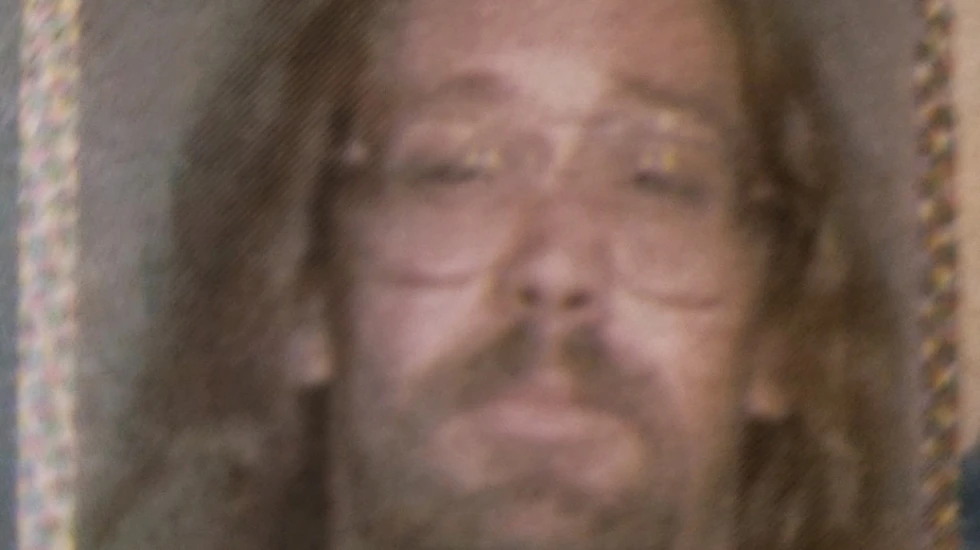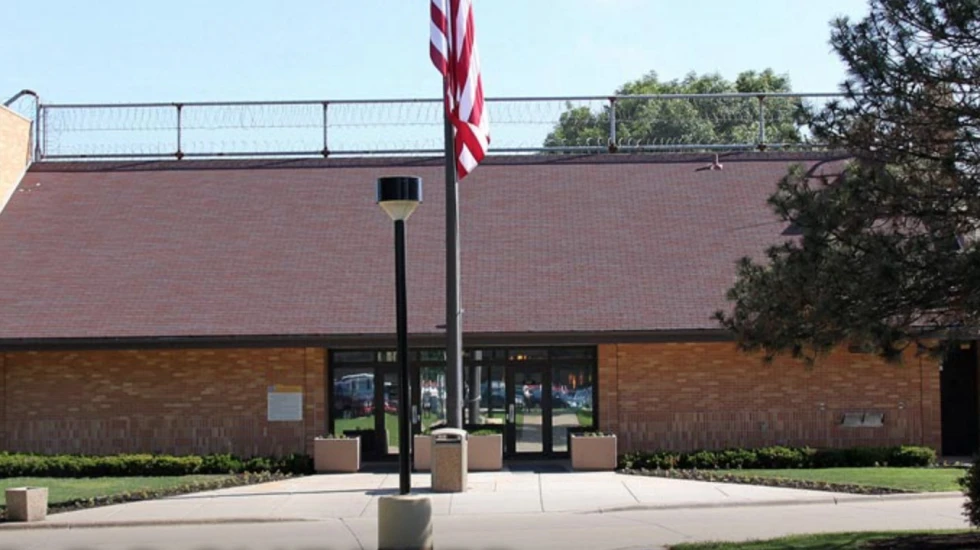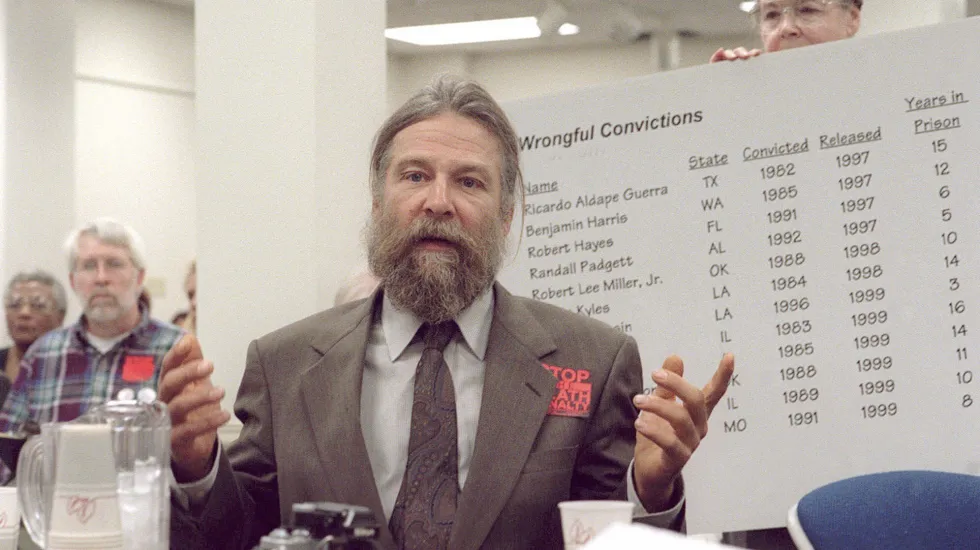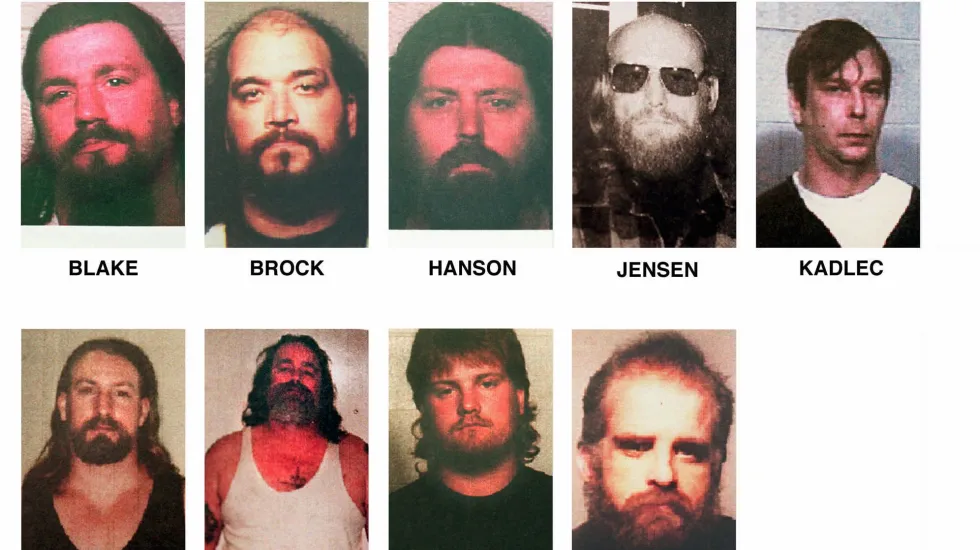
Randall “Madman” Miller used to thunder across the Midwest on a Harley-Davidson as a member of the Outlaws Motorcycle Club, always ready with a knife, a gun, even a bomb.
Often, that was while defending the honor of his biker gang against the Hells Angels, the blood enemy of the Outlaws.
These days, Miller gets around in a wheelchair, not a motorcycle, while serving two life sentences in federal prison on a racketeering conviction that encompassed a series of violent crimes, including the 1993 killings of Morris and Ruth Gauger, a couple in their 70s who ran a business near the McHenry County town of Richmond.
He’s a changed man, the onetime violent biker gang member and drug trafficker has said in court pleadings, and devoted to God now, with his mobility greatly limited since a leg was amputated.
Citing poor health and his fears of COVID-19 in prison, he asked U.S. District Judge J.P. Stadtmueller for a compassionate release from prison under the federal First Step Act, which, among other things, allows federal convicts to seek reductions in their sentences for drug crimes and lets elderly and sick inmates seek compassionate releases.
He recently got his answer: an emphatic no.
“Our criminal justice system has the capacity for — indeed the goal to promote — remorse and compassion,” Stadtmueller, who is based in Milwaukee and who, at Miller’s sentencing in 2000, indicated he was sorry the law didn’t allow him to impose the death penalty, said in a ruling Feb. 14. “But healing requires time and adequately served punishment.”

“Perhaps this case will one day be ripe for compassionate release, but 24 years” — the time Miller has been in custody since his arrest — “is not yet sufficient time for the community’s hurt from defendant’s actions to be healed by his punishment and outweighed by his failing health,” Stadtmueller wrote. “Defendant is receiving adequate care in prison for his health needs.”
Miller, 62, is one of the many federal prisoners who have sought compassionate release, citing age and bad health, under the First Step Act, which was enacted with bipartisan support, championed by rapper Kanye West and signed into law by then-President Donald Trump in 2018.
Larry Hoover, co-founder of the Gangster Disciples street gang, described by prosecutors as “one of the most notorious criminals in Illinois history,” was rejected last year in his bid for release under that law.
Others who have won an early release from prison include Orville “Orvie” Cochran, a former Chicago Outlaws boss. A judge granted him a compassionate release last year, six months before his five-year sentence for racketeering conspiracy involving attacks on rival gang members was up. Cochran had cited health concerns.
Gregg Gauger, the Gaugers’ oldest son, had asked the judge in October to keep Miller behind bars.
“It shouldn’t matter if Mr. Miller were to contract the COVID virus while incarcerated,” Gauger wrote to the judge. “The essential meaning of Miller’s sentence is that he is intended to end his earthly days confined to federal prison.”
“As the death penalty was not applicable to Miller’s sentence, please at this time reaffirm the life sentence without parole (or early release) that you so properly imposed at Miller’s original sentencing.”

Gary Gauger, another son of the victims, initially was arrested for his parents’ killings and wrongfully convicted but eventually released from prison.
It came to light that Miller, from Pell Lake, Wisconsin, and James “Preacher” Schneider, an Outlaws member who lived in Lake Geneva, Wisconsin, killed the couple, who ran a motorcycle parts business on their McHenry County farm.

“Miller personally slit Mr. Gauger’s throat and left him to bleed to death on the floor of his shop,” prosecutors said in arguing against Miller’s early release. “Mrs. Gauger was killed by Miller’s companion and also left to die on the floor of the small rug and trinket shop she operated on the farm.”
They said: “Miller showed no compassion for either of these elderly people who were intentionally killed over what amounted to a small amount of pocket change” — about $15. “Nor did he show any compassion for the Gaugers’ adult son, who, following their murders, was wrongfully arrested for his parents’ deaths and, based on a coerced false confession, was convicted and sentenced to death.”
“The son’s case was only dismissed after the true facts of the crime were revealed by Miller’s accomplice, who pled guilty and testified against Miller.”


Miller was convicted as part of a 1997 case involving 17 Outlaws members from Chicago, the suburbs, southeast Wisconsin and northwest Indiana.
According to prosecutors, among the other crimes included in the federal racketeering trial in which he was convicted, “Miller, who was proved to be among the most violent of the charged defendants, was found to have caused the homicide death of Donald Wagner, who was lured to a remote location by Miller and Outlaws associates and then executed by Miller, who shot him in the head with a .22-caliber pistol. The murder occurred over a load of marijuana.”
“Miller was also involved as a conspirator in the homicide death of Hells Angel Michael Quale, who was stabbed to death at the Erie County, New York, Lancaster Speedway. At the behest of the Buffalo Outlaw chapter president, Miller and a mob of other Outlaws and Outlaw affiliates traveled to New York to assault and kill rival bikers.”
Also, prosecutors wrote: “Miller pistol whipped and broke the nose of a female bartender during an assault and robbery at JR’s Tavern in Calumet City ... as his fellow Outlaws ordered patrons to the floor, broke glassware and fired shots inside the bar, including one that shattered the television. The massive attack ... was intended to intimidate the bar owners so that they would no longer cater to rival bikers.”
The “most horrific” of the crimes “were the homicides of Morris and Ruth Gauger.”

Miller, who was described as an “enforcer” for the gang, has said in court filings that he now “suffers from withering pain and a debilitating state of psychological, emotional and physical deterioration. Specifically, he points to rheumatoid arthritis, which he asserts affects his ability to use his hands and to gastroesophageal disease which affects his ability to eat, with a resulting deleterious effect on his muscle strength and energy level.”
According to court records, “he contends that he suffers from sleep deprivation, depression and cataracts, and he references the amputation of his leg as a ‘nightmare that will follow him to his grave.’”
“According to defendant, in 2003, he ‘turned [his] life over to God and [hasn’t looked] back.’ In 2012, defendant began working as a volunteer in prison. As part of his volunteer work, defendant has sat with dying inmates and interacted with them in their last days and hours. Defendant views his volunteerism as a way of making amends.”

“If released, defendant plans to live in New Jersey with his niece ... far away from the people he associated with before going to prison.”
Miller, now held at a prison medical center in Rochester, Minnesota, won’t comment.
His co-defendant Schneider couldn’t be located.







